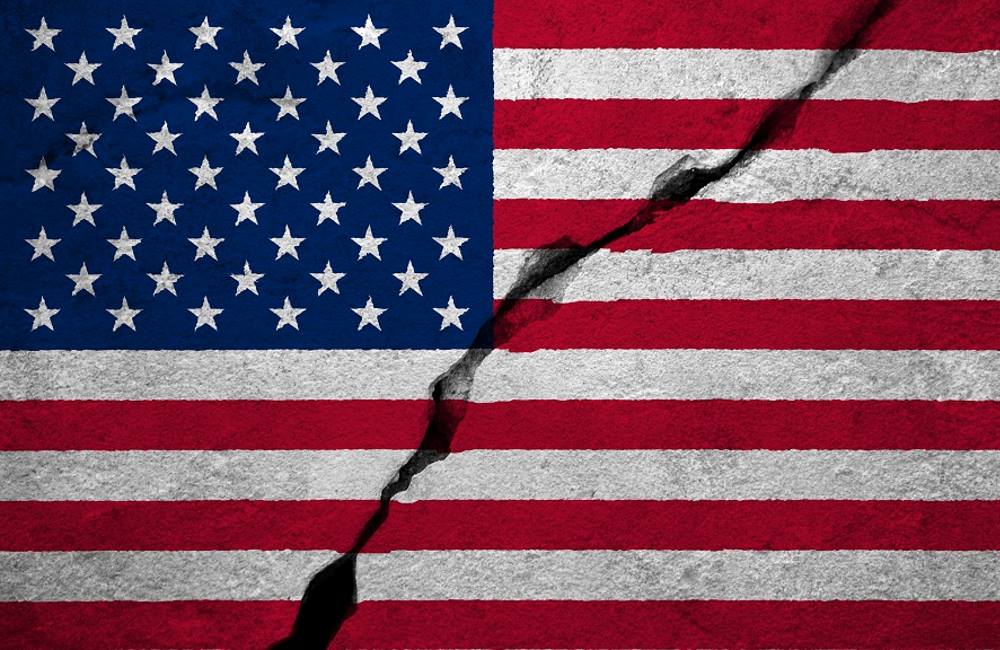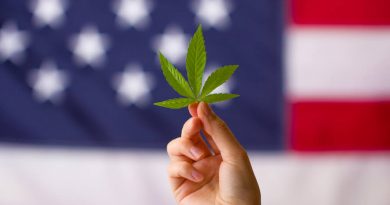Recreational Marijuana Is A Blue State Thing – For Now
It’s a divided country, as any political pundit will tell you. The last several elections seem to have split the country along blue state and red state lines, with only a handful of swing states (such as Florida and Ohio) in the middle.
But what about when it comes to marijuana legalization?
More than half the states – 28 – have approved medical marijuana, but that’s a different proposition than adult-use. Even the reddest of red states, it’s difficult to argue with the idea that people who are in pain or suffering should have the right to try cannabis for relief.
But recreational use? Even a cursory look at the 2016 electoral map will show you that when it comes to adult-use cannabis, it’s a blue state thing. Six of the eight states that have approved recreational marijuana voted for Hillary Clinton in the 2016 election and most have been dependably blue for a long time.
A seventh, Maine, split its vote, with three delegates going to Clinton and one to President Donald Trump. Only Alaska, the other state to have approved recreational marijuana, gave all delegates to Trump.
In Arizona, a red state stronghold, a ballot initiative to legalize recreational marijuana failed. It was the only such measure to fail in November 2016.
Legal Marijuana and Red States
So are people really that different in blue states and red states? On many issues, yes, although one could also argue that in every state (except California) the differences really lie between those in urban areas and those in rural areas and midsize towns.
Even so, the most frequently mentioned states that might approve recreational cannabis are all decidedly blue: Vermont, Rhode Island, Delaware, New Jersey, Maryland and Hawaii.
But is there any chance of a conservative red state joining the legalized recreational marijuana movement?
The following four represent some possibilities.
Arizona
Yes, recreational legalization failed there in 2016. But it failed by just 2 percent in a state that has voted Republican in every presidential election since 1952 (other than in 1996, when the state voted for Bill Clinton). And in cases where legalization has failed the first time around, the second attempt often succeeds. This happened in California, for example, where the first attempt to legalize recreational marijuana failed in 2010.
Texas
The last two Republican presidents – both Bushes – came from Texas. The Lone Star State is as dependably red in national elections as California is blue.
However, state lawmakers this year are considering decriminalizing marijuana possession for small amounts. And the states urban centers – Dallas, Houston, San Antonio and especially Austin – are heavily-populated blue islands in a sea of red. While it may stop at medical marijuana only, the legalization movement could gain steam and include recreational use.
Michigan
So it’s a bit disingenuous to put Michigan on a red state list. After all, the state has been a blue state bastion that voted for the Democratic presidential candidate every year since 1992. But the state went red in 2016 for the first time since voting for George Bush in 1988, so on the list it goes.
The state is home to many vocal advocates for adult-use cannabis, who argue that the state is missing out on millions in both private investment and government taxes, as well as a flurry of jobs. Colorado has shown there is truth to this argument. Medical marijuana has been legal there since 2008.
Missouri
No state in the heartland of America has legal recreational marijuana, but the Show Me State could be the first. However, they have a long way to go. While advocacy groups have been active in Missouri, they failed to get the signatures needed in 2016 to put a legalized marijuana measure on the ballot. They have vowed to accomplish this for 2018,
While other red states might legalize medical marijuana – North Carolina, for example – that’s the short list of those that might consider recreational marijuana in the near future. And by “near future,” we mean by (maybe, in some cases), 2020.
For the short term future, adult-use cannabis looks to remain mainly a blue state thing.




